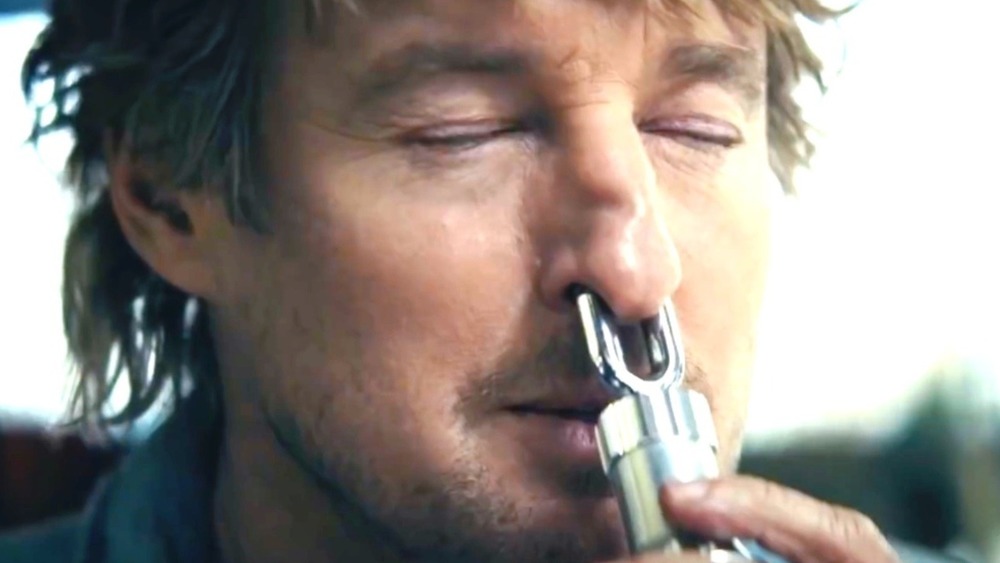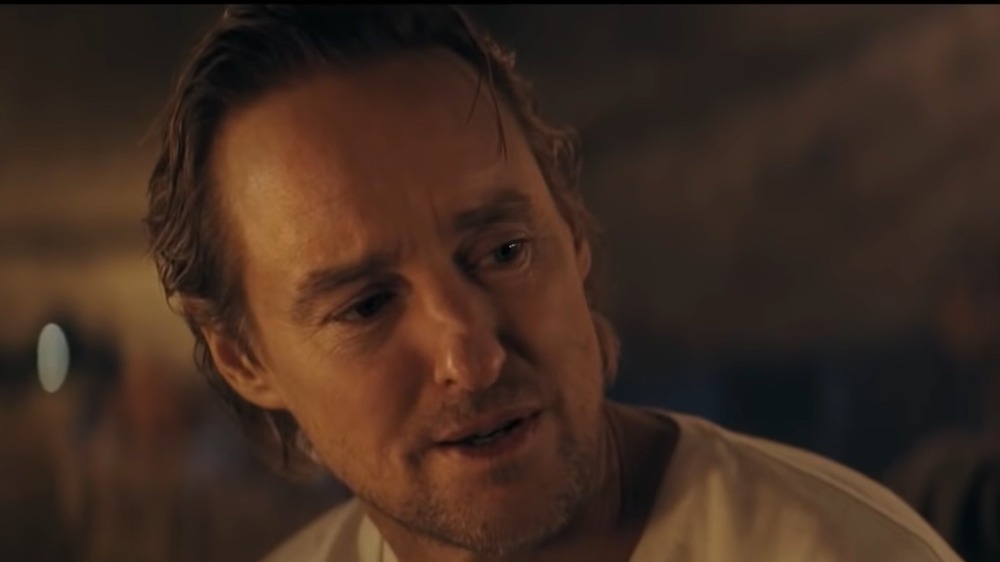The Ending Of Bliss Explained
On February 5, Amazon Prime released a new reality-bending science fiction film, Bliss, from director Mark Cahill, starring Owen Wilson and Salma Hayek. In Bliss, Cahill, who previously explored the nature of reality in Another Earth and I Origins, has crafted another film that questions existence and how individuals define their place in the world around them.
Wilson plays Greg, a divorced employee of a customer service company called Technical Difficulties, who is grappling with dependence on an unspecified prescription painkiller. Greg spends his workdays ignoring his phone, unless his estranged daughter Emily (Nesta Cooper) calls, while drawing sketches of an idyllic fantasy home. Greg's lack of focus on his work leads to his firing and the resultant accidental murder of his boss, setting in motion events that lead him to meet Isabel (Hayek).
Isabel explains to Greg that the world he lives in is merely a simulation that can be manipulated by using yellow crystals and escaped entirely by consuming blue crystals. The blue crystals' use sends Greg and Isabel to a gleaming utopia that Isabel insists is the real world. However, Greg returns to the "simulated" reality to see his daughter, where he finds himself in a homeless camp with weeks of his life gone.
Bliss' narrative is built on the conviction that either reality could be true, and its enigmatic resolution doesn't make things much clearer. Here is the ending of Bliss explained.
Bliss explores the cycle of escape through substance abuse
From the start, Bliss makes it clear that its examination of reality revolves around the use of substances that alter consciousness. At the beginning of the film, Greg is arguing with a pharmacist to fill a prescription for pain pills. As soon as the movie introduces Isabel, most major plot points are influenced by Greg and Isabel using or pursuing the mysterious crystals.
The film's final moments, where Greg checks himself into a rehab center, only highlight the relationship between drugs and reality. While Greg is under the influence of the crystals and following Isabel's lead to continuing consuming them, he allows himself to cease caring about his old life's challenges. He slips into an idyllic world and is willing to remove himself further away from the things that once mattered to him, such as his relationship with his daughter.
However, his relationship with his daughter is what brings Greg back from the utopia, out of the homeless camp, and into the rehab center to make the more challenging choice to seek help. Doing so allows him to reconnect with Emily. In contrast, Isabel takes the blue crystals to either draw the attention of the police or to escape the "simulation." She is gone, while Greg remains. It may be reductive to call Bliss a story of overcoming substance abuse, but the final moments imply that Greg returned to a more important reality by opting to push back against addiction.
Greg has to appreciate a bad reality to find a better one in Bliss
Throughout Bliss, the film never gives the viewer concrete evidence of which reality is real and which is fantasy. The original world that the film opens in appears natural to Greg but is repeatedly called a simulation. The utopian world, which looks too perfect to be real, has technology capable of simulating the world Greg knows. However, both worlds seem to be susceptible to broken physics when Greg and Isabel interact with either the yellow or blue crystals.
Greg asks why a utopian society would create technology to simulate a worse reality. The explanation offered is that the real world is too perfect, and people need to experience a simulated reality of discomfort to enjoy it. Isabel explains that people must "experience the good to appreciate the bad." Greg stops her, saying, "I think you mean the opposite." Isabel responds, "Exactly."
Experiencing Bliss' idyllic fantasy world is the push that Greg needs to realize how bad things have become in his real life and seek help. Greg needed to choose between a utopian reality and a more difficult one to seek help and improve his existence. In the film's final lines, Greg gives Emily some flowers and asks for apologies for arriving late. Emily replies, "You're not late, Dad. You're here."
Director Mark Cahill's interest in simulation theory enables Bliss' dual realities
Bliss is far from the first time Mark Cahill has presented a universe defined by an alternative reality. The 2011 film Another Earth, for instance, saw a mirror planet appear in the night sky then draw close enough to Earth to be within arms reach. Cahill says that Bliss explores this through the lens of simulation theory as a way "to talk about theological proposition" (via Gizmodo).
Cahill elaborated on the connection between simulation theory and Bliss, explaining, "I love where science and spirituality meet. Simulation theory is a way for nerds to talk about theology... and that's what I wanted to explore" (via Uproxx). The point of Bliss, Cahill continued, was to explore two different worlds and see if the characters could reach across them "and connect with a loved one who you lose."
The director even touched on precisely what the film's ending should impress upon the viewer. Cahill says, "The whole purpose is so that final moments of the film resonates when you feel like it's a choice to be here.... He's not saying, 'This world is real.' He's saying 'I'm choosing to be here,'" per Uproxx.



